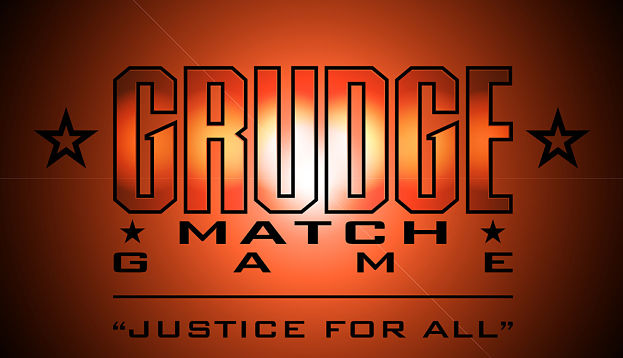There’s a new mobile entry in the eSports game, and it’s actually an old IP. Rich Melcombe, creator of the 1991 Grudge Match TV show, is relaunching the concept with a new international TV show, a mobile game designed for eSports and a proprietary livestreaming network called Grudge Match Unitverse. The concept is to allow people a forum to settle real grudges on the TV show with hand-to-hand combat, or to match people up virtually against people who don’t agree with them on something for a video game grudge match. Each episode of the TV show will feature three video game matches.

Rich Melcombe, President and CEO of Richmel Media and Productions
Melcombe, president and CEO of Richmel Media and Productions, explains why his television concept was ahead of its time and how this concept can tap into the global popularity of eSports, opening up a new avenue for sponsors and brands, in this exclusive interview.
How successful was Grudge Match the first time around?
Grudge Match was successful, and it surprised us. The New York Times — then the TV standard for acknowledgement — gave us a good review. In many markets — where the show ran on Saturday late night, we consistently beat Saturday Night Live. We were the number one 18-49 male demo show in our daypart.
Why did you decide to relaunch this brand now
For the last several years, I’ve been working on interactive television and advertising. I have a deal with Fox to test some of our concepts out. We have been using mobile games — specifically designed and built around the messaging of 30-second TV spots — and our research surprised everyone. During a long, frustrating conference call discussing a game tied to a TV show, I looked at my wall and saw the original Grudge Match placard used in the show, and it struck me that the idea to creative a multimedia property was right in front of me.
What role do you see the video game playing in this launch?
The Grudge Match game is key. If the game does not deliver a good playing experience, the rest of Grudge Match doesn’t matter.
How are you designing the game as an eSport?
Dave Young is our games guru and strategist. He’s working with a terrific team of game developers to build a game that takes skill, but appeals to amateurs too. I’ve met with several sports consultants for the NBA and NFL. I wanted to get an inside perspective on how to build a sport brand. I’ve met with two sports networks too to work on our TV deal. What I learned is that we need to define Grudge Match Sports for the stakeholders — players, spectators/fans, and advertisers, and that all game play needs to be governed by rules and a games committee. Beginning with the players, the Grudge Match game will have three built-in thresholds (amateur, semi-pro and pro). Once a player reaches the semi-pro and pro levels, they will automatically trigger a slew of benefits including sponsorships, guaranteed prize money, and branding opportunities. These players are our athletes, and we need to take care of them. Spectators need a way to connect with the players, and embrace the love of the game, and for them, Grudge Match Universe will be like ESPN. Advertisers need data to support their media buys, and we have put together some pretty cool integrated media plans to leverage the Grudge Match ecosystem.
Who’s your target audience for the game?
Our target audience is 13-49 for game play and 18-49 for advertisers and social media
What have you learned from League of Legends, Dota 2 and Call of Duty in terms of eSports?
Every eSport has its own dynamics, and the fans of those eSports are passionate. We are not trying to compete with any eSport, but rather create a new eSport category that take four minutes to play rather than an hour or more, and is built around a premise. Maybe we could be the Candy Crush of eSports; sometime to do when you’re waiting to do something else
What types of prize money do you see supporting this eSport with at launch?
While we have not focused on prize money yet, I can tell you that we will have logic determining the amounts. The lowest prize money amount will be for local tournaments, and the highest will be for the global invitational tournaments. If players make the TV show, they will receive the greatest amount of prize money. For our streaming platform “Universe,” we are building a function for spectators/fans to”tip” players based on performance. It is possible players could double, triple their prize money. In one of my last interactive tests, I worked with WPP, one of the largest global ad agencies. I’ve spoken with a few of their executives, and they are trying to understand eSports too. I have no doubt that after “proof-of-concept,” we’ll get many brands to work with us from all of the agencies.
What are your plans for the TV show and how will this cross-promote the game?
Two sports networks have indicated they want to work with us, and I believe I could close a deal now, but I’m still analyzing the global TV market, and figuring out how all of the pieces work together. I’ve put together four movies and one TV show globally, so I know the players. What works for us in France and Germany might not work in Australia, and then there is China (I’ve been there 39 times) where I doubt we’ll get a TV deal because of our premise, but we’ll be on one of their online platforms. In terms of cross-promotion of the game, we will control every element of the show hour including advertising and promotion, and with our second screen application built into every game, the viewing experience will be nothing short of amazing. Since I’ve been in the old and new media space for some time, I think that several networks are looking to us to figure out the template for live sporting events going forward.
Why did you decide to create your own livestreaming network rather than going through Twitch?
There are truly no words to describe the success of Twitch. I’m in awe. The reason we decided to create or own platform was for two reasons, one, we did not want Grudge Match to get lost, and two, control. We want to build a business where every piece of our eSport interconnects, and leverages each vertical.


